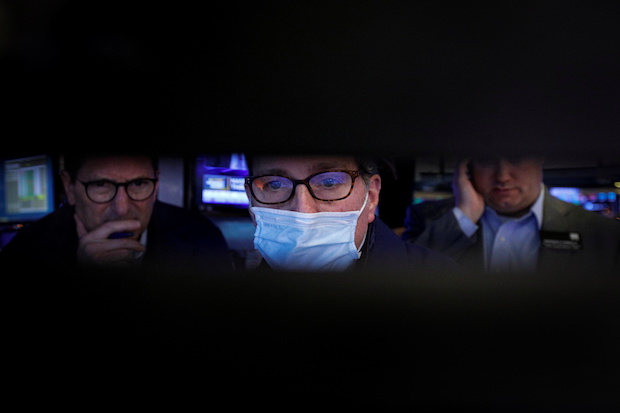Trade ‘misinvoicing’ a growing menace, says DC-based think tank

Traders work on the floor of the New York Stock Exchange (NYSE) in New York City, U.S., Dec. 2, 2021. (REUTERS)
As illicit financial flows to-and-from the Philippines and its trading partners rose in recent years, illegally earned money accounted for an average of over a fourth of the country’s total trade from 2009 to 2018, the Washington-based Global Financial Integrity (GFI) said.
In its Dec. 16 report “Trade-Related Illicit Financial Flows in 134 Developing Countries 2009-2018,” GFI said a total of about $1.6 trillion in trade “misinvoicing” occurred among developing nations, including the Philippines, in 2018.
It included $835 billion in illicit financial flows, which potentially transpired between the 134 developing countries and 36 rich nations, GFI said in a statement.
“Trade misinvoicing is a persistent problem across developing nations, resulting in potentially massive revenue losses and facilitating illicit financial flows across international borders,” GFI said.
Trade misinvoicing happens when exporters and importers intentionally misdeclare the value of shipments they trade on the invoices that they submit to customs authorities, such that money can be illicitly moved across global borders. This results in possible tax evasion, money laundering, circumvention of currency controls, plus hiding of profits in tax havens, GFI noted.
In 2018, the Philippines posted a record-high $31.6-billion total value gap—defined by GFI as “mismatches in international trade transactions, indicating that developing countries are not collecting the correct amount of trade-related taxes and duties that are owed”—across all of its global trading partners.
The Philippines’ value gap has been on the rise since 2016’s $21.9 billion and 2017’s $28.8 billion.
During the period 2009 to 2018, the Philippines’ value gap averaged $23.9 billion.
As a share of the Philippines’ total external trade, its value gap accounted for 26.1 percent, the fifth-biggest share worldwide after Gambia’s 51.9 percent, Sierra Leone’s 35.4 percent, Togo’s 29.2 percent and Ghana’s 26.4 percent.
Its 2018 value gap accounted for 23.3 percent of two-way foreign trade, down from 24 percent in 2017.
While the Philippines landed within the top 10 countries with the biggest value gaps in 2009 to 2015, it shrank its gap compared to other countries from 2016 to 2018.
“While these value gaps are only estimates of misinvoicing, they indicate the scale of the problem,” GFI said.
